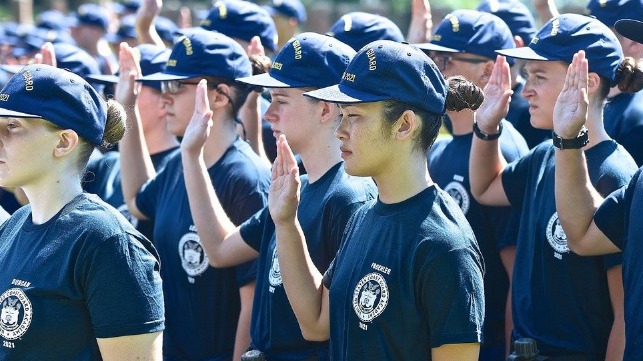Inquiry Calls for Action on Racial Harassment at USCG Academy

The U.S. Coast Guard's Office of Inspector General (OIG) has completed a review of racial harassment in the corps of cadets at the Coast Guard Academy, and it has concluded that the institution "must take additional steps to address allegations of race-based harassment and prevent such harassement on campus."
In its inquiry, OIG identified 16 known allegations of race-based harassment involving cadets between 2013 and 2018. The office said that it found problems in the way that the academy handled 11 of these incidents; in six, OIG determined that the academy's inquiry was insufficient or it failed to discipline those responsible - and in two instances, the cadets involved were repeat offenders.
"By not thoroughly investigating or consistently disciplining cadets for this misconduct, the Academy missed opportunities to: (1) demonstrate to cadets their behavior was unacceptable, (2) prevent repeat misconduct, and (3) show cadets reporting harassment that the Academy takes these reports seriously," OIG wrote. In addition, the inquiry identified six instances (including some overlapping cases) in which the academy had not notified its own civil rights staff of the allegations.
OIG indicated that the frequency of racial harassment incidents at the academy is likely underreported due to peer pressure and the fear of negative repercussions for cadets who participate in an investigation - both during and after their time in New London.

that matters most
Get the latest maritime news delivered to your inbox daily.
"One of the individuals said, after taking part in the investigation of a fellow cadet of the same race, an officer at the Academy counseled the cadet to 'support' others of the same race," OIG wrote. "Other cadets we interviewed said cadets know how to report, but will not because of the potential for backlash from the cadet community."
As remedial action, the OIG recommended that the academy should formalize its policies for determining which cases get investigated and how penalties for cadets are assessed and documented. In addition, it recommended mandatory training for cadets on how to recognize and avoid harassing behaviors.
